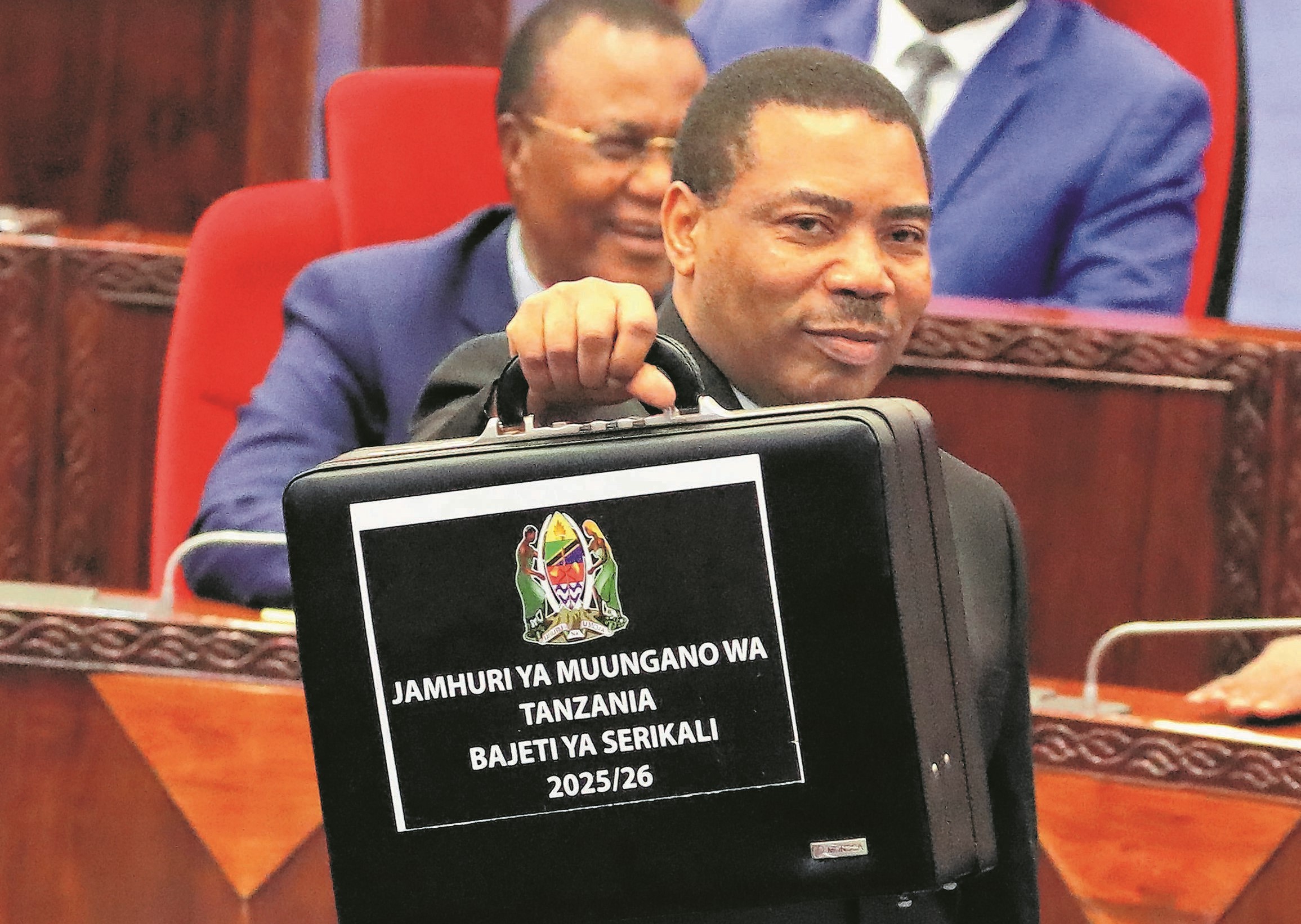Prime
What Tanzanians should expect as new financial year begins

Finance minister Mwigulu Nchemba displays the briefcase containing the 2025/26 Budget Speech before delivering it in Parliament in Dodoma on June 12, 2025. PHOTO | COURTESY
What you need to know:
- The budget also brings new costs. Passengers travelling by air will now pay an additional Sh1,000 per ticket, while train travellers will see a Sh500 increase in fares due to a new levy.
Dodoma. The 2025/26 government financial year officially begins today, July 1, bringing with it a range of changes that offer relief to some citizens while increasing the financial burden on others.
The new budget, amounting to Sh56.49 trillion, was passed by Parliament on June 24, 2025. It introduces significant amendments to tax structures, regulatory frameworks, and service charges—some of which will immediately impact the daily lives of Tanzanians.
Among the major beneficiaries of this year’s financial plan are “boda boda” riders and small-scale traders, who will enjoy a raft of tax and fee reductions. The registration fee for commercial motorcycles has been halved from Sh340,000 to Sh170,000 for a three-year period.
Moreover, the presumptive tax previously levied annually has been replaced with a flat one-time fee of Sh20,000—down from Sh290,000.
Licensing fees for operating motorcycles and rickshaws have also been reduced from Sh70,000 to Sh30,000. Additionally, local government authorities have been stripped of powers to arbitrarily close businesses, a move welcomed by the private sector.
Other changes include a new requirement that the minister responsible for trade must approve the list of businesses that are off-limits to non-citizens. Meanwhile, the hotel levy has been cut from 10 percent to 2 percent, and a standardised 0.25 percent service levy introduced across the board.
However, the budget also brings new costs. Passengers travelling by air will now pay an additional Sh1,000 per ticket, while train travellers will see a Sh500 increase in fares due to a new levy. Locally produced ice cream containing cocoa or other flavourings is now subject to a 5 percent excise duty, and energy drinks face a Sh134.2 per litre tax.
Alcohol taxes have also gone up, with excise duty increasing by Sh10, Sh15, and Sh25 per litre for beer, wine, and spirits respectively. The tax on betting winnings has risen from 10 to 12 percent, and land-based casino operations will now be taxed at 13 percent.
A new fuel levy of Sh10 per litre on petrol and diesel has been introduced to support the rollout of universal health insurance.
In the conservation sector, 91 percent of revenues collected by the Tanzania National Parks Authority (Tanapa) will now be divided, with 51 percent going to the agency’s Bank of Tanzania account and 40 percent allocated to the Government Consolidated Fund. A similar arrangement will apply to the Ngorongoro Conservation Area Authority.
Public reactions mixed
Commenting on the fiscal changes, Dr Lutengano Mwinuko, a lecturer at the University of Dodoma, said implementation will be key. “Much of what has been planned looks good on paper, but delivery will depend on resource mobilisation and targeted disbursement,” he said.
In Dodoma, boda boda rider Alex Musa expressed gratitude to Parliament for approving the fee reductions.
“The old licensing costs were too high. This change will encourage more riders to operate legally,” he said.
Mr Emmanuel Temba, secretary of the Mpunguzi grape farmers’ cooperative, praised the removal of punitive penalties for non-compliant traders. “Now TRA is more collaborative—businesses can negotiate repayment terms rather than face closure,” he said.
However, he noted that those in the wine industry still face a relatively high tax burden. Prominent Dodoma businessman Peter Olomi said the reduction in hotel levy from 10 to 2 percent was particularly welcome.
“This budget has addressed most of the issues we’ve raised for years. It’s fair and practical—especially for an election year,” he observed.
Resident Hashim Said acknowledged that some new charges were necessary. “Gambling and alcohol aren’t essential, so taxing them makes sense. But fuel levies could increase transport costs for everyone. At least the revenue will go to healthcare, which benefits all,” he said.





